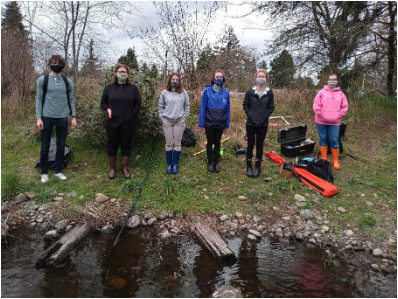
Dear Pierce County,
Over the last semester in my Environmental Studies 350 course at PLU, I began to truly appreciate the importance and impact of community. In a time of social distancing and virtual classes, the class’ rare physical sessions were a literal and metaphorical breath of fresh air. As we conducted our data collections at the Parkland Prairie, I could not stop thinking about the negative impact that our communities have had on other communities, both human and nonhuman. PLU sits on the traditional lands of the Nisqually, Puyallup, Squaxin Island, and Steilacoom peoples, and while Indigenous tribes are all different from one another, many share similar concepts of balance and reciprocity with the Earth. Because of this, harm to the watershed directly impacts the Indigenous peoples who still live here. They live in community with the Earth, and this is an important balance from which I think we all can learn a beneficial lesson. The Euro-American ideology has silenced Indigenous voices for far too long, and it is our responsibility to center Indigenous voices in conversations about environmental justice and protection. Thus, as a community we share a duty to come together, respect our Indigenous neighbors, and listen to them as they tell and show us how use the concepts of balance and reciprocity to care for the watershed and for the Earth. Once we begin to listen, we will learn how we can operate as beneficial members of the local watersheds and improve the health and safety of both human and nonhuman communities.
In community,
Ryan Shane


